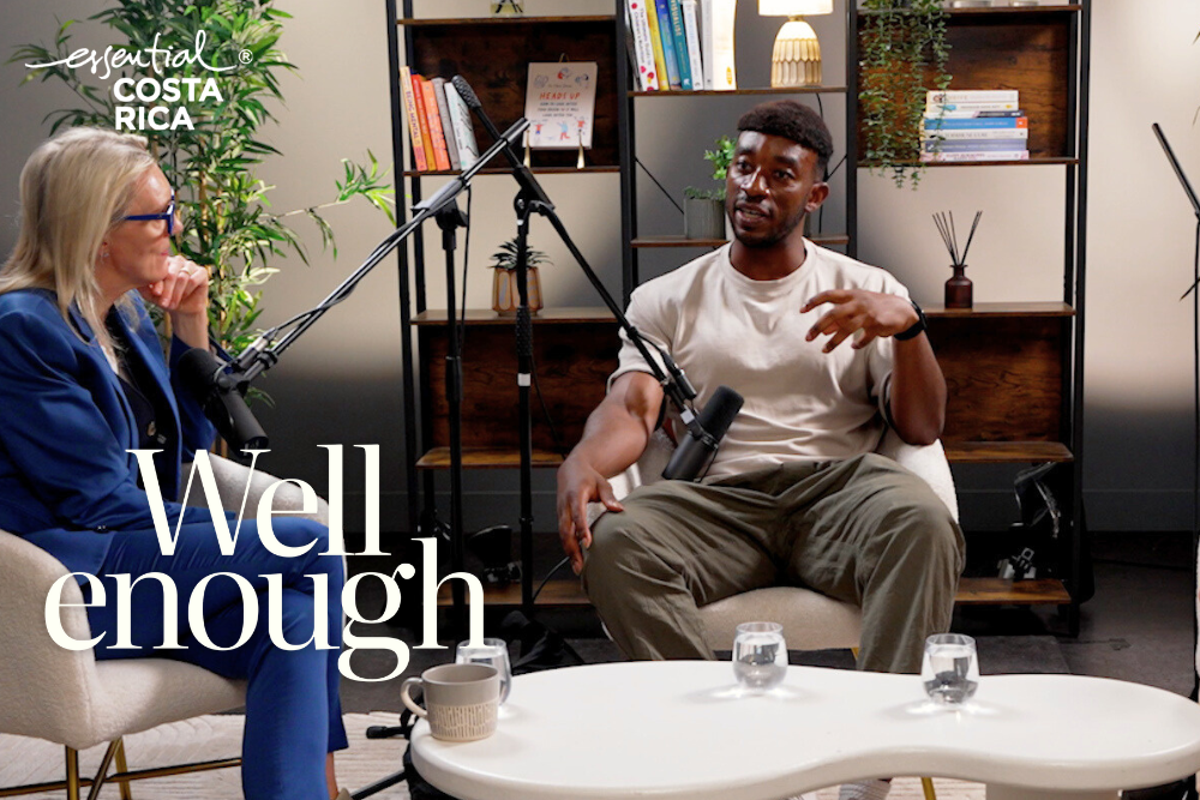The UK is nearing a wellbeing crisis point and people are in deep pain, says GP Dr Amos Ogunkoya
By Emilie Lavinia
Copyright independent

In a new episode of the Well Enough podcast GP and TV medical expert Dr Amos Ogunkoya discussed the cycle of burnout, loneliness and disconnection faced by the British public and the interventions needed to boost wellbeing.
The episode, which explores whether our corporate careers are pushing us too far and whether the distractions and dependencies of modern life – like social media and competition with colleagues and friends – might be doing us more harm than good, also featured Zoe Kalar, the founder and CEO of WeAre8.
Dr Ogunkoya painted a compelling picture of the state of the UK’s stress levels and described how many of the patients he sees in clinic as a GP conceal high levels of stress and anxiety. He also explains how burnout – a state of emotional exhaustion in which the challenges of life exceed our ability to cope with them – is now an official term used by medical professionals. So why, asked Emilie Lavinia, don’t we notice it until it’s too late?
Dr Ogunkoya, who is also a doctor for the Premier League supporting some of the world’s most talented athletes, also shared personal experiences that recently caused him to reflect deeply on the mental health and wellbeing of some of the most vulnerable people in the UK.
“I had one of the most profound experiences with a patient I’ve ever had yesterday,” Ogunkoya told podcast host Emilie Lavinia. “There’s a GP practice which is set up to look after the homeless. So I ran the clinic there yesterday. I’m not afraid to admit that I shed a tear afterwards, which was really weird for me. When when you deal with the medical stuff, it’s like, bang bang bang, antibiotics, fine. And I had a few minutes left and I was like, right. ‘So, what happened? Tell me what’s going on, and how you’re feeling.’
“He used the phrase during the consultation, and I felt it was very real, I felt that everyone can describe it. He called it ‘soul pain’, he called it ‘deep soul pain’, and he goes, ‘you’re asking me, doctor, genuinely, what has brought me here? There’s such deep soul pain.’
“And then I was going, ‘okay, I don’t know how to make this better.’ At the end, he gets his stuff, because he he’s rough sleeping, and he goes, ‘thanks for listening, Doc.’ And then he shook my hand and he walked out.”
“He was a bit of a philosopher in the way he explained it. […] ‘This is what’s happened to me, deep in my soul, and I’m aware of it and thank you for listening.’ And I was just taken aback by it. There’s a lot of people who are just walking around with that state, waiting for someone to ask them.”
Both guests also discussed how screen time and social media echo chambers contribute to building stress levels and how often, stress is concealed by those experiencing it most intensely.
“Fear and anger are very strong emotions and our brains aren’t built to be in that state constantly,” says Ogunkoya. “People are often asked do they feel burnt out but are at the top of their business and really high flying. They feel burnt out but technically, it hasn’t affected their performance.”
Kalar opened up about her experience as a tech entrepreneur and expressed how this cycle led her to create WeAre8 – an AI-powered social media platform that blocks hateful content, gives users agency and donates its profit back to communities and non-profit organisations.
“Whether we notice it or not, big tech are the global governments, they are taking the money from the time and value of the people, and they’re not putting back into society. […] $200 Billion to Meta,” she says.
“If you have to keep people scrolling to make more money, to deliver against shareholder return, you have to make it toxic. So the algorithms have become worse and worse and worse and worse. It is all money. It’s money, and it’s greed and power and control.
“We’ve forgotten what it’s like to live in a world where we’re not abused.” says Kalar. “We want to inspire you for ten minutes a day and in order to do that we have to block the hate.”
Dr Ogunkoya and Kalar also took the opportunity to discuss the impact of social media on children, life before smartphones, the long-term health implications of loneliness, mental health resourcing in the UK and how to have difficult conversations with friends, family and your manager at work.
Listen to the episode here and watch the full episode here. Well Enough is available wherever you get your podcasts.
Take a smarter approach to feeling good. Sign up to the Well Enough newsletter for evidence-based wellness insights.